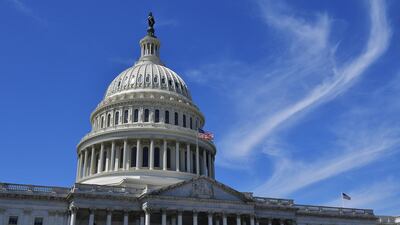Millions of Americans will begin to see their unemployment benefits lapse, at least temporarily, after President Donald Trump did not sign a bipartisan stimulus package containing pandemic aid on Saturday night.
Mr Trump dug in over the size of direct cheques to be sent to many Americans, but the $900 billion stimulus accord contains many other measures.
They include extended unemployment benefits, funding for food banks, rental assistance, support for small businesses and Covid vaccination programmes, and other items.
The Covid pandemic continues to worsen in many areas of the US and more workers are in danger of losing their jobs.
Mr Trump took no action on the stimulus bill that Congress approved, which has been delivered to him at his Mar-a-Lago resort in Florida, beyond expressing his displeasure in tweets up to and after midnight on Saturday.
Signing the bill would have allowed states to update their computer systems for the continuing benefits.
The stimulus law is in addition to a $1.4 trillion spending bill to fund the federal government, which without Mr Trump’s signature could close down early next week.
He has demanded that Congress increase stimulus cheques from $600 to $2,000 for eligible Americans.
It blindsided legislator who spent months negotiating the final package, and is opposed by many Republicans.
Mr Trump has also complained about some of the items in the stimulus plan and in the spending bill.
“I simply want to get our great people $2,000, rather than the measly $600 that is now in the bill,” he tweeted on Saturday.
President-elect Joe Biden criticised Mr Trump on Saturday for refusing to sign the bill.
Mr Biden said that as many as 10 million Americans will lose their unemployment insurance benefits.
About 14 million people have been receiving benefits through the Pandemic Unemployment Assistance and Pandemic Emergency Unemployment Compensation programmes.
“It is the day after Christmas and millions of families don’t know if they’ll be able to make ends meet,” Mr Biden said.
“This abdication of responsibility has devastating consequences.”
Democratic Senator Chris Murphy of Connecticut on Saturday tweeted that Mr Trump must “pick up the phone and tell Republicans to stop blocking $2,000 payments”.
Mr Murphy said Mr Trump’s last-minute snag was designed to create “chaos”.
Senator Bernie Sanders of Vermont said the president should sign the bill, and then ask Republicans for separate legislation on direct payments.
It could take as long as a month before people receive their funds and even longer for the effects to filter into the economy, said Michael Englund, chief economist at Action Economics.
Beyond the short-term effects, the lack of immediate direct payments and gap in special unemployment benefits threaten to deepen economic damage marked especially by a jump in long-term unemployment.
Democrats plan to vote on Monday on new legislation to codify the $2,000 payments for most American adults and children.
They could also vote on another stopgap measure to fund the government past the current spending deadline of midnight that day.
That would avert a government shutdown if the Senate also passed it and the president signed it, but it is still unclear what Mr Trump plans to do with the larger pandemic relief and annual spending bill Congress passed on December 21.

